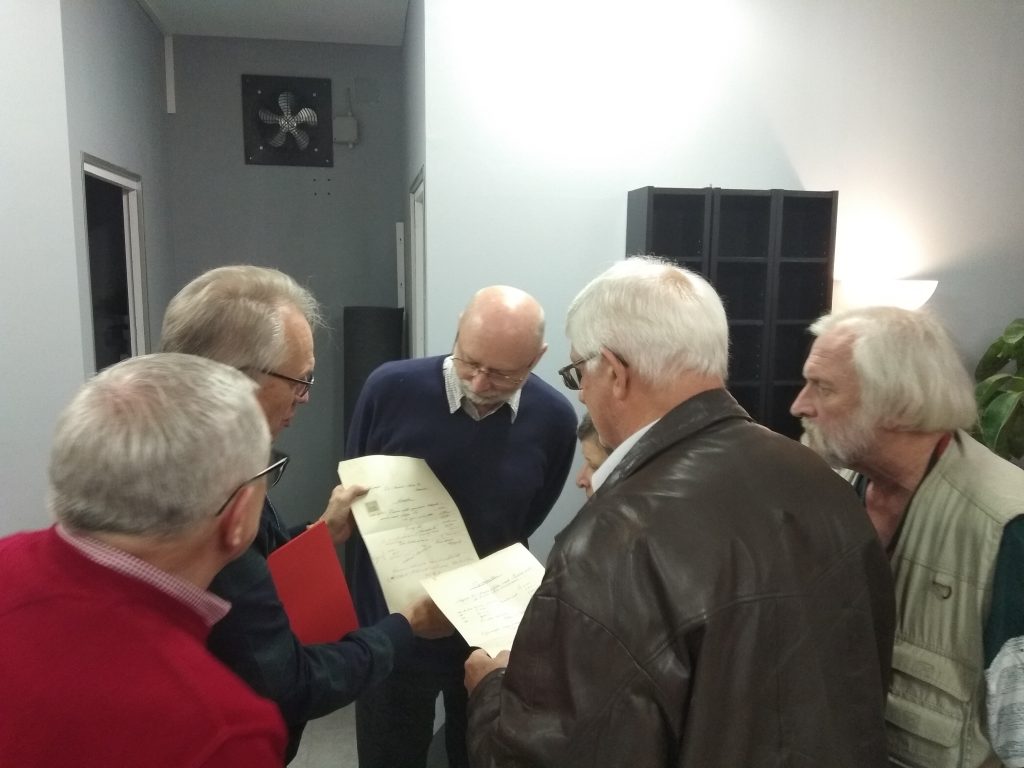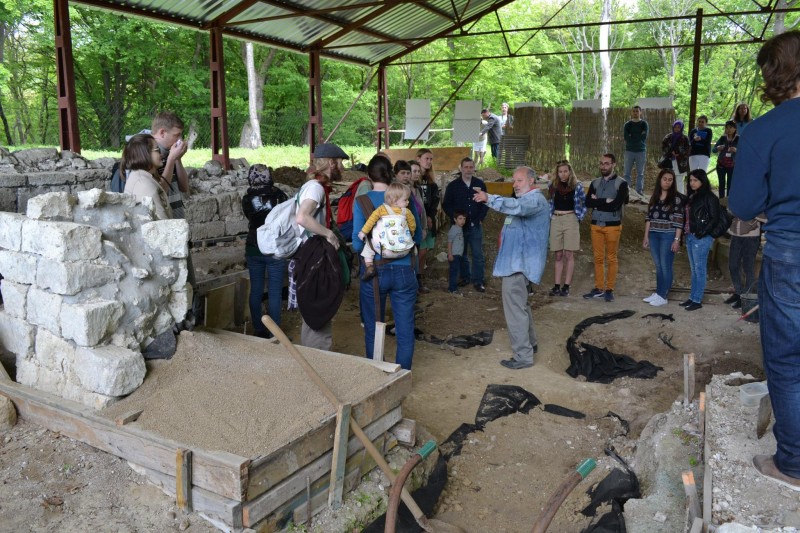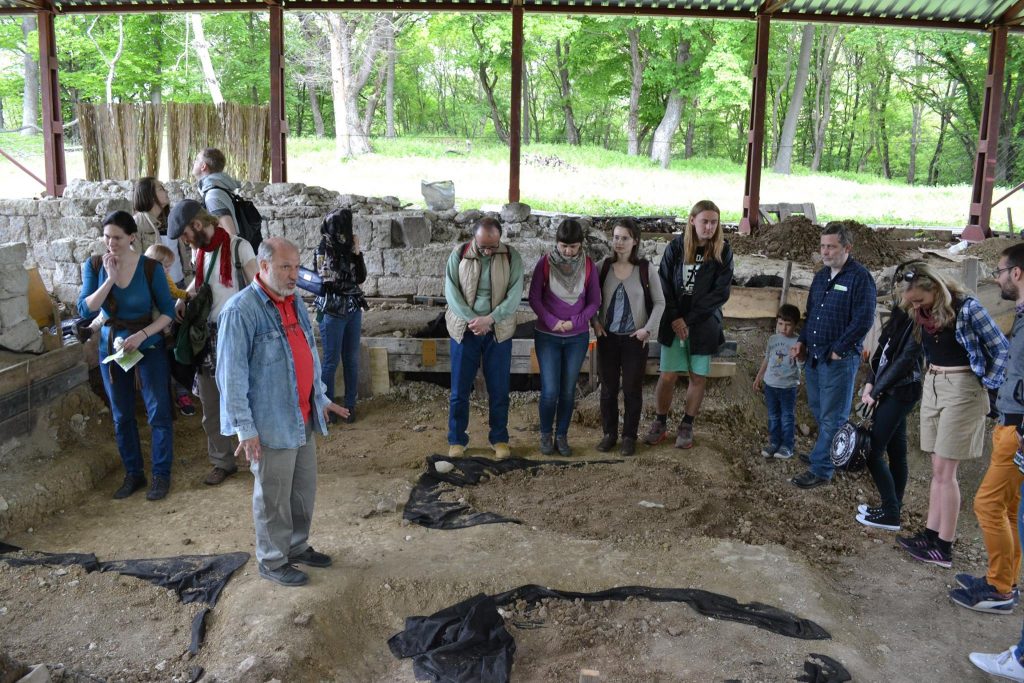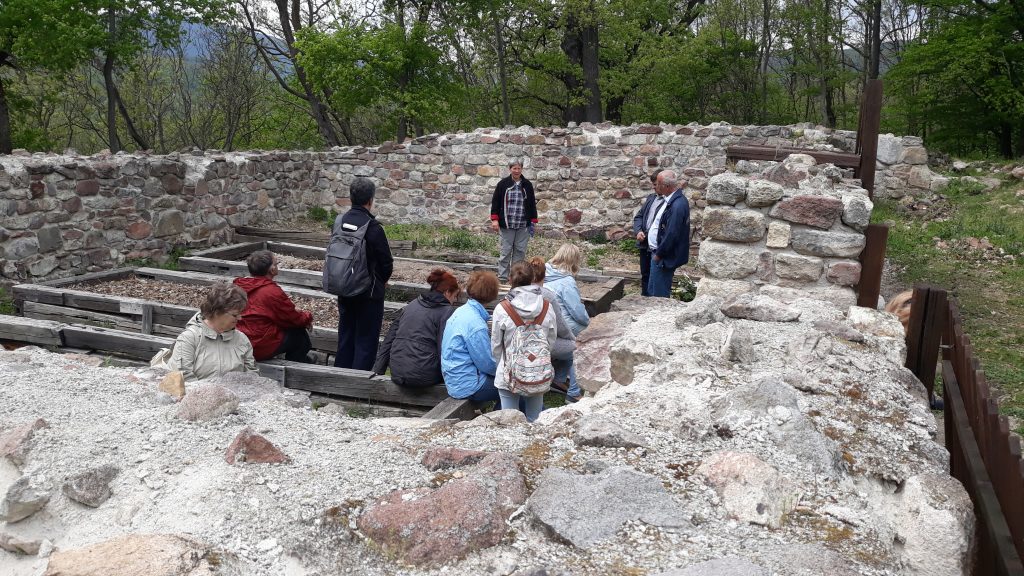To understand how locals perceive their heritage, what elements they find important and how they relate to the Pomáz-Nagykovácsi site lies at the heart of the Pomaz Lab’s strategy. It is regarded as a crucial steppingstone in increasing the site’s popularity in the village and in the surrounding area. Thus, the Lab has been very active in reaching out, and organising events that involve the personal participation of the local community.
One of the most important were the annual European Heritage Days events, organized on the site in the fall of 2019 (22-23 Sept, with 22 Sept as a special family day), where the focus was the presentation of the archaeological site itself.
In the frames of the cooperation with CEU a small international workshop was also organized (8–9 Nov). Volunteering and the use of volunteer experience in heritage practice was in the focus of the workshop; case studies from the UK and Hungary had a special emphasis. On the second day students and heritage protection specialists came to see the Szentendre open-air ethnographic museum, the Pomáz ethnographic museum, and the “Glasshill” archaeological site as case studies of heritage management.

In 2019 winter – 2020 spring we organized a lecture series in cooperation with the local NGO Friends of Pomáz on the history of the town and the region in general. (Lectures were held on these dates: 30 Oct 2019, 6 Nov, 20 Nov, 4 Dec, and the series continued in 2020: 22 Jan, 5 Feb, 14 Feb, 4 March. The lecture planned to be held on 14 March had to be postponed due to the epidemic.) A wide range of topics from the history of famous local families to the legend of a medieval queen who was allegedly murdered at this locality, to Roman period archaeological finds and the past landscape of the region were discussed. The speakers were mostly locals themselves, or scholars who have connections to the town one way or another. These occasions, including the debate after each session, provided us with a great opportunity to see what the local community perceives as their historical heritage.
The outreach plan was abruptly stopped by this spring’s Covid epidemic, prompting the development of new, web-based outreach programmes.



